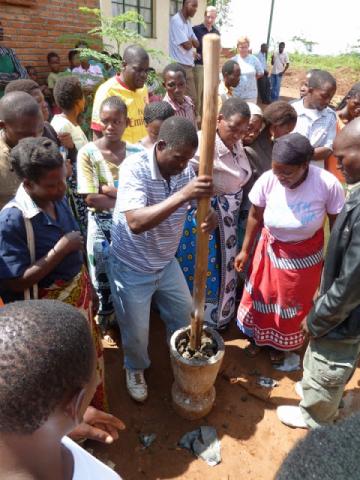ABOUT CONREMA
CONREMA, the Cooperation Network for Renewable Energy in Malawi, provides an exchange and learning platform for all stakeholders involved in the design, implementation and analysis of energy projects in the country or in related policies and strategies. Registration to the network is free and open to all with a proven interest and the readiness to share information with other network members.
The network secretariat hosts the so far most comprehensive database of projects in Malawi that are fully or partly related to institutional or household-scale community energy supply beyond the national electricity grid. These include a wide range of technologies from solar PV to wind power, biogas, bio-fuels and efficient biomass combustion devices which are being distributed in Malawi using a diversity of approaches from simple hand-outs to local production and enterprise schemes to fully community managed rental schemes, among others. Through making this database available, the network seeks to support the Government of Malawi, funding partners, researchers, private sector and non-profit implementers of these projects. The project database and the network fora provide an opportunity to compare existing and potential approaches and technologies, enhance decision making and project design based on thorough learning from best practices, and creates partnership links. Network members also have access to a capacity database in which experts in all aspects and roles relevant to the sector can post their profiles and services offered thus contributing to a more fair competition also for smaller local businesses and to a better utilization and involvement of the great specifically trained workforce and young graduates in the sector.
CONREMA was initiated by Renew’N’Able Malawi, a local non-governmental organization and think-tank focused on renewable energy, based on consultations with different Government officials and a wide range of stakeholders since 2010 and the fact that in multiple stakeholder meetings it was concluded that coordination and overview of “what is happening and how and through whom” was crucial to a systematic and sustainable further development of the sector and its underlying strategies and policies. In September 2012, RENAMA co-organized a workshop with the Business Innovation Facility and the World Bank Climate Change Institute during which the idea of the network was shared with stakeholders and their inputs requested. DFID through the Business Innovation Facility supported the set-up of IT infrastructure for the network homepage and data administration while RENAMA contributed the basic information about projects in Malawi, gathered over the past 5 years through personal research by members of the Board. Currently, the website is being improved, missing inputs are solicited from stakeholders, information about projects is being verified with the implementers and members are registering to the network and testing the functionality.
RENAMA has committed to help building the network, engage members and the Government on how to sustainably run it, engage financial supporters in order to broaden the database and verify status and community involvement on the ground, develop a remote monitoring system with the local and national Government and to be able to organize regional membership meetings, so that a vivid relationship among stakeholders as well as a good responsiveness of the network to its diverse members’ and potential sub-group needs can be ensured.
A small number of other associations and lose networks exist in specific sub-sectors related to renewable energy in Malawi, like the private-sector oriented Renewable Energy Industry Association of Malawi (REIAMA); the Movement for Bio-Energy Advocacy, Utilization, Learning and Action (MBAULA) which acts in close collaboration with the National Cookstove Taskforce; the Biofuels Association of Malawi; or the Civil Society Network on Climate Change (CISONECC).
Not all of the existing bodies are currently highly active and some even dormant but with potential of revival. Through the CONREMA overall information sharing platform, all these sub-groups are given an opportunity to enhance their visibility, engage more actively with other stakeholders, express their needs and also to request support for their specific activities.
Activities and benefits
Our members enjoy various opportunities for linking up, exploring synergies and establishing partnerships. Through their member profile in the capacity database, their contributions and experience can be presented to other stakeholders in the sector.

